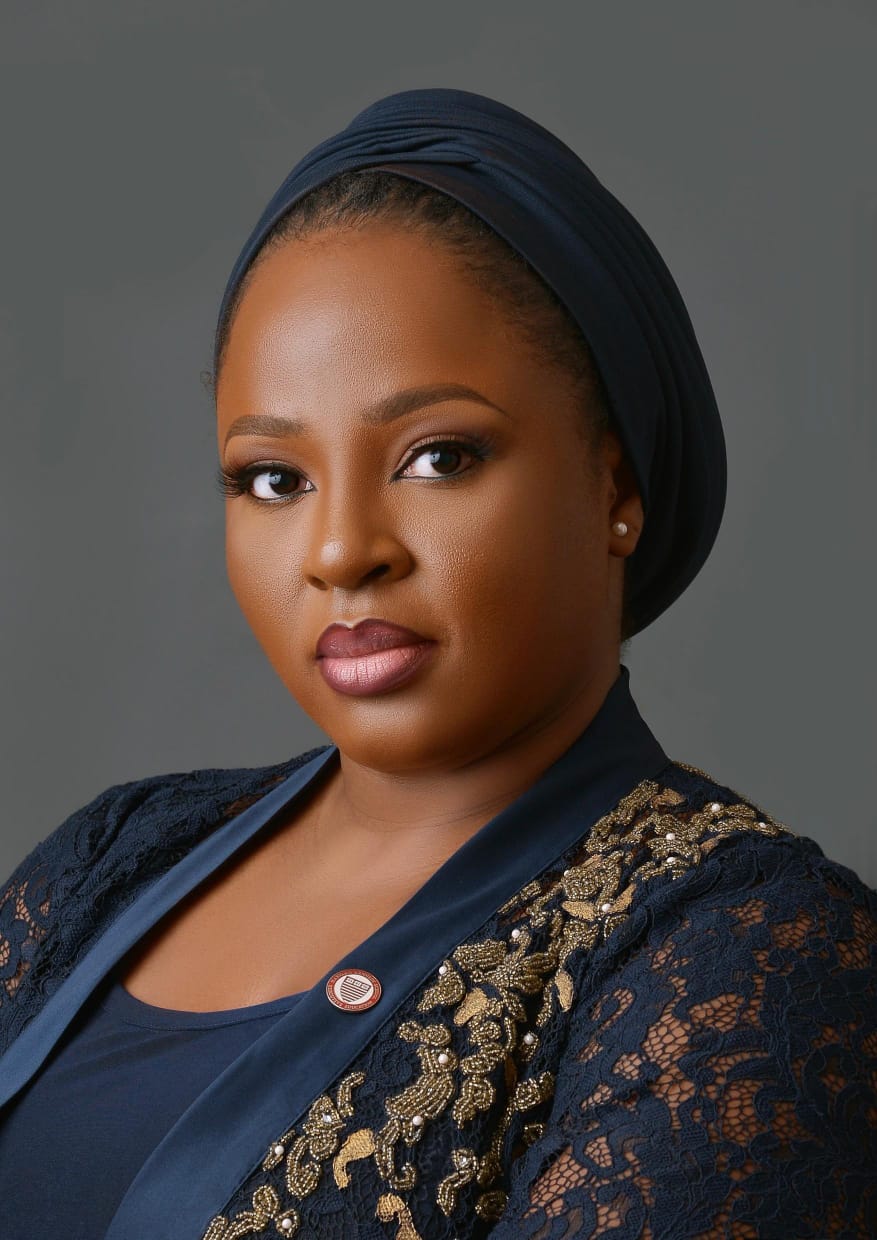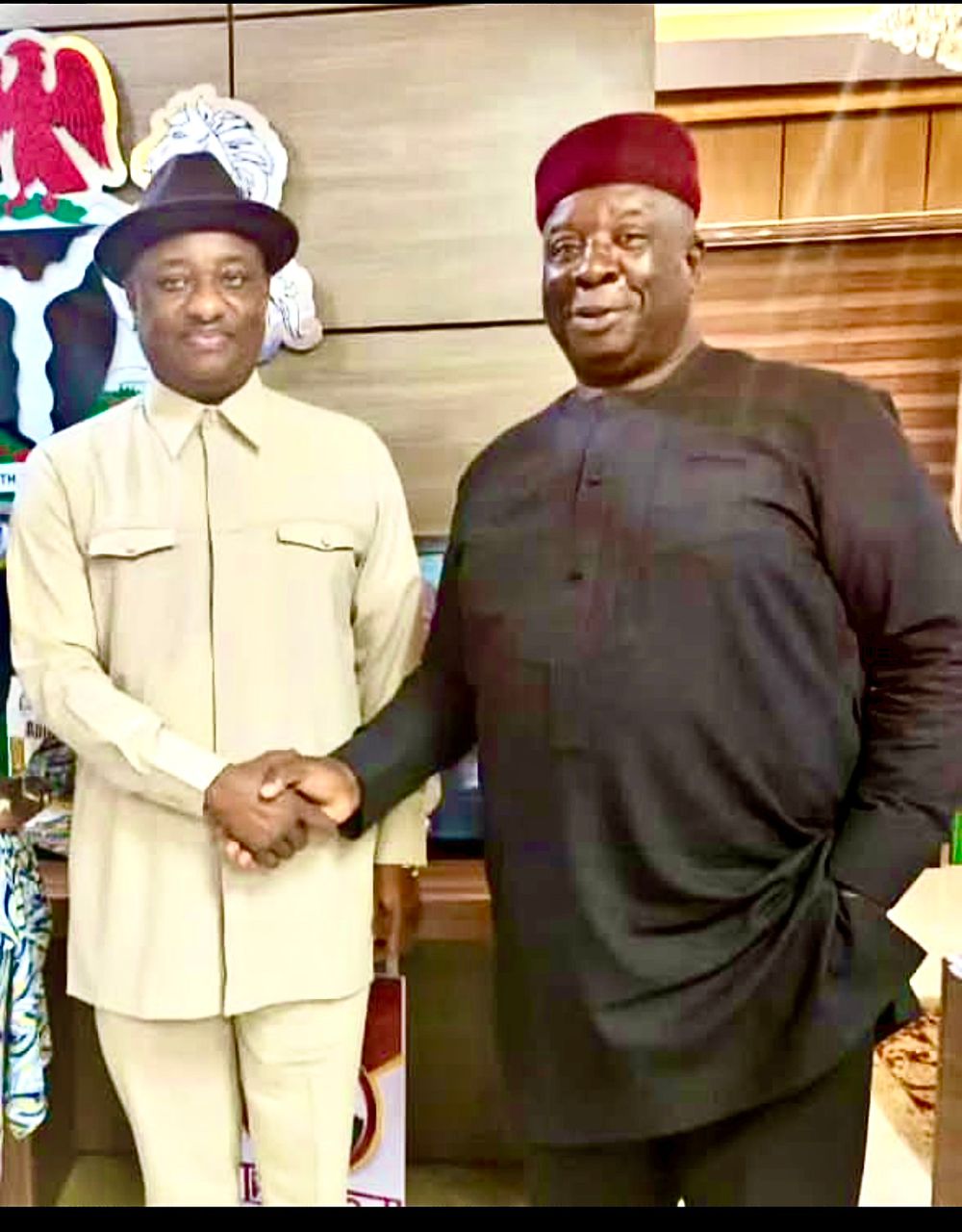Featured
Rebuilding Cohesion: National Identity as the Foundation for Trust and Strong Institutions

By Enene Ejembi
In a country as diverse as Nigeria—over 200 million people, 500 languages, more than 200 ethnic groups, and three major religions—the search for national unity is not just a noble aspiration; it is a strategic necessity for nation-building, deepening democracy, and unlocking sustainable development.
Without unity, the state struggles to mobilize citizens’ collective will, build strong institutions, and deliver inclusive growth.Yet the path to unity is often misunderstood. It is too often pursued as a quick win—declared in speeches and celebrated in symbolic moments—rather than built through the patient work it requires. True unity demands long-term investment, deliberate trust-building, and reconciliation.
It cannot be achieved without confronting, and where possible correcting, historical wrongs that continue to shape relationships between communities and the state.
When these deeper fractures are left unaddressed, cohesion remains elusive, and our weak sense of a shared national “we” persists.
The “Sense of Us” ImperativeThis is precisely the challenge Ricardo Hausmann describes in his “Sense of Us” theory: nations cannot advance economically without a deep, widely shared identity that makes citizens feel part of the same “we.” Without that collective sense of belonging, cooperation falters, sacrifices for the common good become harder to mobilize, and institutions—even when well-designed—struggle to function. Development, democratic deepening, and nation-building all require the “software” of social cohesion to match the “hardware” of policies and institutions. In Nigeria’s case, rebuilding that shared identity is not a sentimental exercise; it is the foundational work on which trust, effective governance, and sustainable progress depend.National Identity as a Strategic Lever for Cohesion National identity is not a feel-good concept or a cultural afterthought. It is a strategic tool for nation-building—one that can deliberately foster cohesion in a fragmented society.
A strong and inclusive national identity doesn’t erase local affiliations; it situates them within a broader, collective narrative. It is about ensuring that every Nigerian, regardless of ethnicity, religion, gender, or region, feels seen, valued, and included in the national story.
Building such an identity requires intentional action. Inclusive education, media representation, national symbols, historical storytelling, and fair policy-making are all vehicles for expanding the group of citizens who see themselves as part of the national whole.
One compelling example is Nigeria’s Special Seats Bill (HB.7), which proposes reserved parliamentary seats for women.
This is not just about political quotas; it is an effort to correct the historical exclusion of women from political leadership, expand the circle of contribution and belonging, and signal that women are equal stakeholders in Nigeria’s future.
By increasing women’s representation, the Bill strengthens the shared national identity that underpins social cohesion.
A Practical Roadmap for Inclusion and TrustRebuilding Nigeria begins with rebuilding “we”—or, as Ricardo Hausmann describes it, fostering a shared “sense of us”.
This is not a linear process, but one that requires concurrent investments in inclusion, identity-building, and service delivery.
Civil society, traditional institutions, media, and government must all work together to create a sense of shared purpose and belonging.
Women’s political representation is a central pillar in this roadmap, not a side issue.
The Special Seats Bill is more than a reform—it is an act of identity-making. It expands the boundaries of “who belongs” and affirms that a nation’s future must be shaped by all its people.
Similar measures—such as quotas for youth, persons with disabilities, and marginalized groups—can help deepen participation and broaden the national identity.
These are not symbolic gestures; they are building blocks of a new, inclusive nation.
Alongside representation reforms, other tools include strengthening physical security through effective state protection; economic security through equitable opportunities, social safety nets, and basic services; and inclusive governance through policies that guarantee equal access to justice and uphold the rule of law.
Inter-group dialogue, peacebuilding, addressing historical grievances, cultural integration, and sustained civic education all contribute to the same goal: a society where every citizen feels they belong.
From Cohesion to Trust and Institutional StrengthWhen social cohesion is strengthened through shared identity and inclusion, it creates the fertile ground upon which trust in governance can grow. People are more likely to engage and cooperate with government—pay taxes, vote, comply with laws—when they feel represented and valued.
Only then can institutions begin to function effectively.
Trust is the foundation upon which institutions stand.
Without it, no amount of reform or technical expertise will be enough. Citizens trust institutions not because they exist, but because they serve, protect, and reflect their aspirations. Strong public institutions—courts that uphold justice, agencies that deliver services fairly, and electoral commissions that ensure credible elections—can only thrive in an environment where legitimacy is not in question.
That legitimacy stems from a society that believes in its collective identity.
Embedding Identity in Culture and Daily LifeCohesion must live not only in official documents but in the daily rhythms, celebrations, and aspirations of Nigerian life.
A national identity rooted in the best of our values, historical achievements, and aspirations should be consciously woven into everything we do—our policies, our development plans, our reforms, our institutions, our laws, and our social norms.
It should also be present in the stories we tell, the music we compose, the films we produce, the books we write, and the educational curricula that shape our children’s minds.
It should echo in our public ceremonies, be reinforced in our civic education, and be reflected in the art, media, and cultural symbols that define us at home and abroad.
As Andrew Fletcher of Saltoun argued in 1703, “if a man were permitted to make all the songs of a nation, he need not care who should make the laws.”Conclusion:
The Cohesion Imperative Cohesion is not a byproduct of development; it is its foundation.
Shared national identity fosters cohesion.
Cohesion enables trust. Trust makes institutions work. Women’s political representation—and the broader inclusion it symbolizes—is essential to building that identity.To build a Nigeria that delivers for all, we must move beyond rhetoric to deliberate action.
We must cultivate a national identity rooted in justice, fairness, and inclusion.
Only then can we build institutions that endure, and governance that serves. In the end, a nation is not built solely by its government, but by the strength of its bond with its people.
That bond, anchored in shared identity, is the key to a more stable, peaceful, and prosperous Nigeria.
Enene Ejembi is the Founder and Executive Director of Verbatim Virtual Solutions, an international development consulting firm based in Nigeria. She can be reached on X via her handle: @enenezig
Featured
CELEBRATING A CENTURY-OLD CIVIL AVIATION SECTOR TRAJECTORY IN NIGERIA

This week, millions of Nigerians and others across the globe will join the Ministry of Aviation and Space Development under the irrepressible leadership of the Honourable Minister, Festus Keyamo(SAN),and all the notable Aviation sector stakeholders in and outside the country,in celebrating a century of Nigeria’s civil aviation history.
There is no doubt that under the present leadership of the Honourable Minister and within the short spell of time in his stewardship,he has consciously and intentionally embarked on a “silent revolution” for the industry with very veritable and laudable landmarks that have consistently grown the industry.
Some of these spirited efforts for instance have consequently led to trust restoration amongst international lessors, financier,any global partners.Of note also is assidiously working for the full domestication and implementation of the “Cape Town Convention Agreement” ,which gives Airlines access to modern fleets of competitive rates as well as enforcement of IDERA(Irrevocable Deregulation and Export Request Authorization).
Having well applauded these vital contemporary initiatives,it will also be germane to cast our minds in retrospect by taking a peep into our history over several decades to recognise some of the notable forebears in the industry whose impressionabl efforts cannot be overlooked,as they took the impetuous initiatives of breaking the ice at the nascent stage.
It will aptly corroborate the truism which says that… ” a journey of a thousand miles starts with one step”.
The above is vividly captured from a tribute by the First Republic Minister of Aviation Chief Mbazulike Amaechi at the funeral of late Igwe of Oba,HRH Peter Ezenwa(MFR) in 2018.
It states inter alia…”One significant thing I will say many people didn’t know is that the first indigenous airline that was to run in Nigeria was known as “STANDARD AIRLINE”.It was founded in 1966 by a company formed by Igwe Peter Ezenwa from Oba,and had on board,John Nwankwu from Abagana,Edward Ebo from Ezinifitte,(all from Anambra state),John Anyaehie from Nkwerre in Imo state,and lastly my very self Mbazulike Amaechi.
The five of us later acquired two brand new aircrafts,and had four pilots,namely;Unachievable,John Emma Ngwu and Felix Offor,who was to be the General Manager of the airline.
But just about the time for the take-off the crisis of the military takeover erupted in the North as the planes were on their way for delivery to us.In fact the bank handling the transaction was to allow the planes to be flown from the USA,but the news of the war broke out in 1967,the insurance company cabled for the cancellation of the deal as they will not be able to cover the risk cost of aircrafts being flown into war zone.
So,we asked the manufacturers to take the two aircrafts back to their country and hold on for six months with the hope of that the war will end within the requested time frame,but the war didn’t end as thought.We consequently asked for refund and they deducted some money and refunded the balance which was deposited at the London branch of African Continental Bank(ACB).
When the government took over the operations of ACB,we still hoped for the refund but unfortunately were disappointed that the Federal government took over the whole money and we lost everything.”
Further in line with our historical perspective,it will also be pertinent some of the later years reformists in the likes of Engr Onyereri and Harold Demuren who advertently sponsored some far reaching regulations that eventually steered the industry towards greater autonomy with the passage of the 2005 Civil Aviation Act,which I was also a prime participant of in my capacity as an Aviation sub chair in then House of Representatives.
As we mark this great century milestone,and with the clear evidential pathway set out by the current managers of the industry under the indomitable leadership of Honourable Minister, I do not see the sky posing any limitations as they say,but rather availing new vistas of limitless growth opportunities.
CONGRATULATIONS.
Hon Chidi Nwogu
Former member House of Representatives & presently Governing Council member
,African Aviation and Aerospace University,Abuja.
-

 Featured6 years ago
Featured6 years agoLampard Names New Chelsea Manager
-

 Featured6 years ago
Featured6 years agoFG To Extends Lockdown In FCT, Lagos Ogun states For 7days
-

 Featured6 years ago
Featured6 years agoChildren Custody: Court Adjourns Mike Ezuruonye, Wife’s Case To April 7
-

 Featured6 years ago
Featured6 years agoNYSC Dismisses Report Of DG’s Plan To Islamize Benue Orientation Camp
-

 Featured4 years ago
Featured4 years agoTransfer Saga: How Mikel Obi Refused to compensate me After I Linked Him Worth $4m Deal In Kuwait SC – Okafor
-
Sports3 years ago
TINUBU LAMBAST DELE MOMODU
-

 News12 months ago
News12 months agoZulu to Super Eagles B team, President Tinubu is happy with you
-
Featured6 years ago
Board urges FG to establish one-stop rehabilitation centres in 6 geopolitical zones
